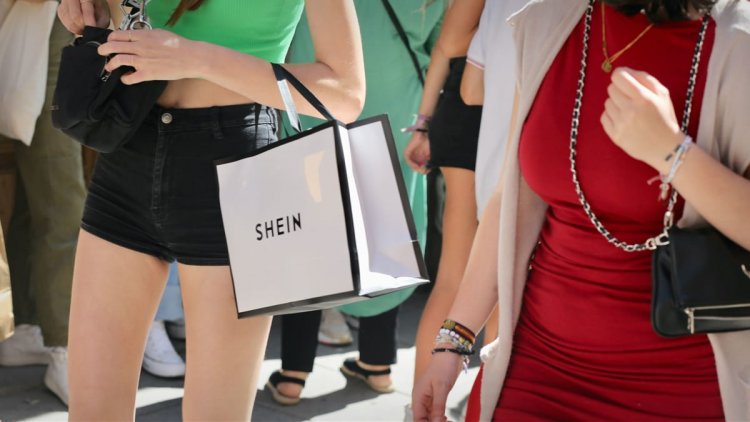Mega Startup IPO Faces Serious Trouble
Some in Congress are calling for the SEC to block this company from going public unless it takes a big action.

Some in Congress are calling for the SEC to block this company from going public unless it takes a big action.
Americans love fast fashion, even if they most likely never heard of the term or know exactly what it means.
In a nutshell, fast fashion refers to the ability of apparel makers to rapidly design, make, and sell trendy low priced clothing to consumers. And once a collection fizzles out, these companies just as quickly discard unsold clothes and start the cycle anew again. By some estimates, the fast fashion market will hit $185 billion by 2027 compared to $106 billion last year.
One particular company has come to dominate the fast fashion market in the United States: Chinese online apparel firm Shein. With a private valuation of $100 billion, Shein is now the third most valuable unicorn in the world and worth more than most publicly-traded firms. If Shein decides to go public, investors widely expect Shein’s IPO to be one of the biggest ever.
No IPO for Shein?
However, the big word here is if. A bipartisan group in Congress is seeking to block Shein’s IPO on the grounds that it uses forced labor in the Xinjiang Uyghur Autonomous Region in China.
In a letter to Securities and Exchange Commissioner chairman Gary Gensler, the group asked the SEC to require an independent organization verify Shein doesn’t use forced labor before it goes public.
“While SHEIN claims its products do not utilize Uyghur forced labor and it works with third parties to audit its facilities, experts counter that these types of audits are easily manipulated or falsified by state-sponsored pressure,” the letter says. “Other experts argue that it is appropriate to presuppose that any product made in the XUAR is made with forced labor.”
As with everything concerning China and U.S. relations, the issue is much more complicated than it seems. First of all, forced labor, low wages, and unsafe working conditions have long plagued the apparel industry, not just Shein.
Just last month, two Democratic U.S. Senators sent letters to the CEOs of Walmart Stores Inc., (WMT) - Get Free Report Target Corporation, (TGT) - Get Free Report and J. Crew questioning them about a New York Times investigation that determined migrant underage children were illegally working for the companies or their subcontractors, not in Asia but under the nose of regulators in the United States itself.
Overall struggle between U.S. and China
Most notable, the scrutiny of Shein comes at a time of poor relations between the United States and China in which each country has attacked each other’s economic interests.
Under the Trump Administration, America slapped punitive tariffs on Chinese goods, tariffs that President Biden has yet to lift. Last year, the Federal Communications Commission banned approvals of new telecommunications equipment from China's Huawei Technologies and ZTE because they pose "an unacceptable risk" to U.S. national security.
And there are growing calls in Washington, DC to ban TikTok, again out of supposed national security concerns. Despite little evidence, lawmakers say that the Chinese government will use the popular video sharing app to spy on Americans. ByteDance, a Chinese unicorn valued at $225 billion, owns TikTok.
In fact, the letter to the SEC about Shein highlighted the relationship between the firm and TikTok and vaguely suggested they were somehow coordinating their efforts to undermine America.
“SHEIN’s mobile app is currently the fourth most downloaded app in the United States,” the letter said. “The company is also one of TikTok’s largest advertisers and pays thousands of social media ‘influencers’ to market its wares to consumers via short and addictive videos on TikTok.”
China is hardly innocent. The country has committed human rights abuses in Tibet and Uyghur. And China has long spied on and stolen trade secrets from U.S. companies and universities. China also requires foreign companies to give up intellectual property as a condition for operating in the country.
China recently questioned employees of Bain & Company consulting firm at its offices in Shanghai. And authorities have also detained five Chinese nationals working for Mintz Group consulting firm in Beijing.
Still need each other
Despite this economic cold war, the two countries still desperately need each other. American companies rely on Chinese manufacturers to produce cheap goods. And China depends on U.S. capital markets, the best in the world, to raise money, and on American consumers to keep buying Chinese-made goods.
In fact, it’s highly unlikely that ByteDance and Shein would be worth hundreds of billions dollars without deep pocketed U.S. investors. And there’s a reason why Shein would want to go public in New York even though Shanghai and Hong Kong boast their own stock exchanges.
Only last year, major publicly-traded Chinese firms like Alibaba Group Holding (BABAF) , Baidu Inc. (BIDU) - Get Free Report and JD.com (JD) - Get Free Report faced a serious risk of Nasdaq and New York Stock Exchange delisting them because U.S. regulators could not fully examine their financial data. The companies finally granted regulators access to the data, averting the crisis.
But with Shein and TikTok, it looks like another one is brewing.
What's Your Reaction?



























































